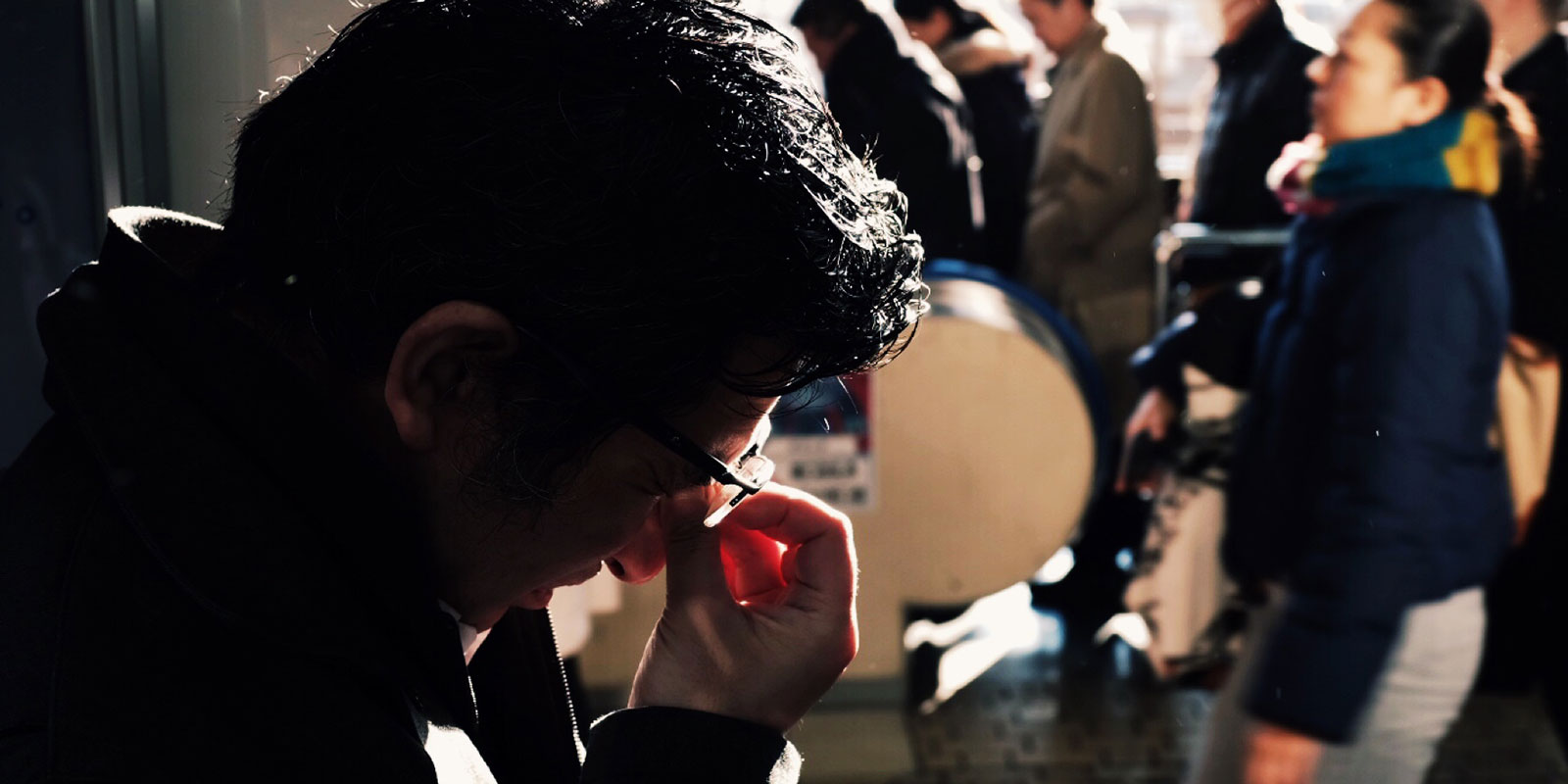Stress testing
Can a strand of hair show your stress levels? Startup Evcare hopes its revolutionary assessment method can help Japan tackle the pressures of modern working life. Ili Saarinen meets the company’s CEO, Kei Isozumi
Feeling stressed out? You’re not alone. According to polling company Gallup’s 2024 State of the Global Workplace report, 41 percent of people around the world are, more often than not, experiencing “a lot of stress.”
Japan is often described as a “high-stress” society and a 2021 government study revealed that the majority of Japan’s employees feel that work-related stress has a negative impact on their mental health. Even more alarmingly, 57 percent of working women in Japan rated their psychological state as “poor” in a 2022 Deloitte survey.
Recognizing mental health issues as a growing concern, the Japanese government has mandated annual stress checkups at all workplaces with 50 or more employees since 2015. These assessments involve workers filling in a questionnaire on their mental state and include the opportunity to see a mental health professional.
 Flickr
Flickr
Isozumi’s company bases its business on quantifying stress levels by analyzing hormone concentration in hair
But critics say that surveys aren’t always the ideal way to identify and tackle stress; not least because at some workplaces, employees may hesitate to respond honestly out of worry that the “wrong” answers could hinder their career development. What, then, might a kinder, gentler, and more effective approach to measuring and dealing with stress look like? One innovative potential answer to that question is offered by Evcare, a startup launched out of Shiga University, where CEO Kei Isozumi completed a master’s degree in education with a focus on bullying and mental health.
Isozumi’s company bases its business on quantifying stress levels by analyzing hormone concentration in hair
Isozumi’s company bases its business on quantifying stress levels by analyzing hormone concentration in hair, a method developed by Evcare’s CTO and Shiga University professor Masako Ohira. By testing for cortisol, the hormone secreted when you feel stressed, and DHEA, which works to calm your body and set things right, this proprietary process gives a good indication not only of how stressed someone is right now, but of their “stress history” too—because the hormones accumulate in hair over time.
 Unsplash
Unsplash
Head first
Evcare, however, has its sights set both above and beyond the hairline, so to speak. “Our service,” Isozumi says, “is about helping people develop a skillset for dealing with stress.” His firm accomplishes this by offering a comprehensive stress-testing package for companies and organizations, one that combines scientific analysis with counseling. “There’s no one right way to deal [with stress],” Isozumi says. “Stress isn’t all bad—it’s also what keeps you going—so responses to it [at workplaces] need to be flexible.”
More ambitiously, Isozumi wants to alleviate the stress conundrum on a social level. “Since back when I studied bullying, a key concern of mine has been to raise awareness of stress and how it works in social contexts,” he says. “Having a framework for identifying high levels of stress in an organization can be useful. The data we currently collect [through stress checkups] could in the future be used to make workplaces less stressful on the whole, furthering wellbeing.”
“I’d like people to think that taking care of your mental health, just like your physical health, is ‘cool’ and something anyone can do”
Ultimately, Isozumi hopes that Evcare’s model of bringing together objective data and subjective therapy in the interest of psychological care can help nudge Japan—and the rest of Asia—toward a less stigmatized, more positive understanding of mental health. “I’d like people to think that taking care of your mental health, just like your physical health, is ‘cool’ and something anyone can do,” he says. “Becoming aware of stress and the fact that you can manage it yourself is a big step in the right direction.”